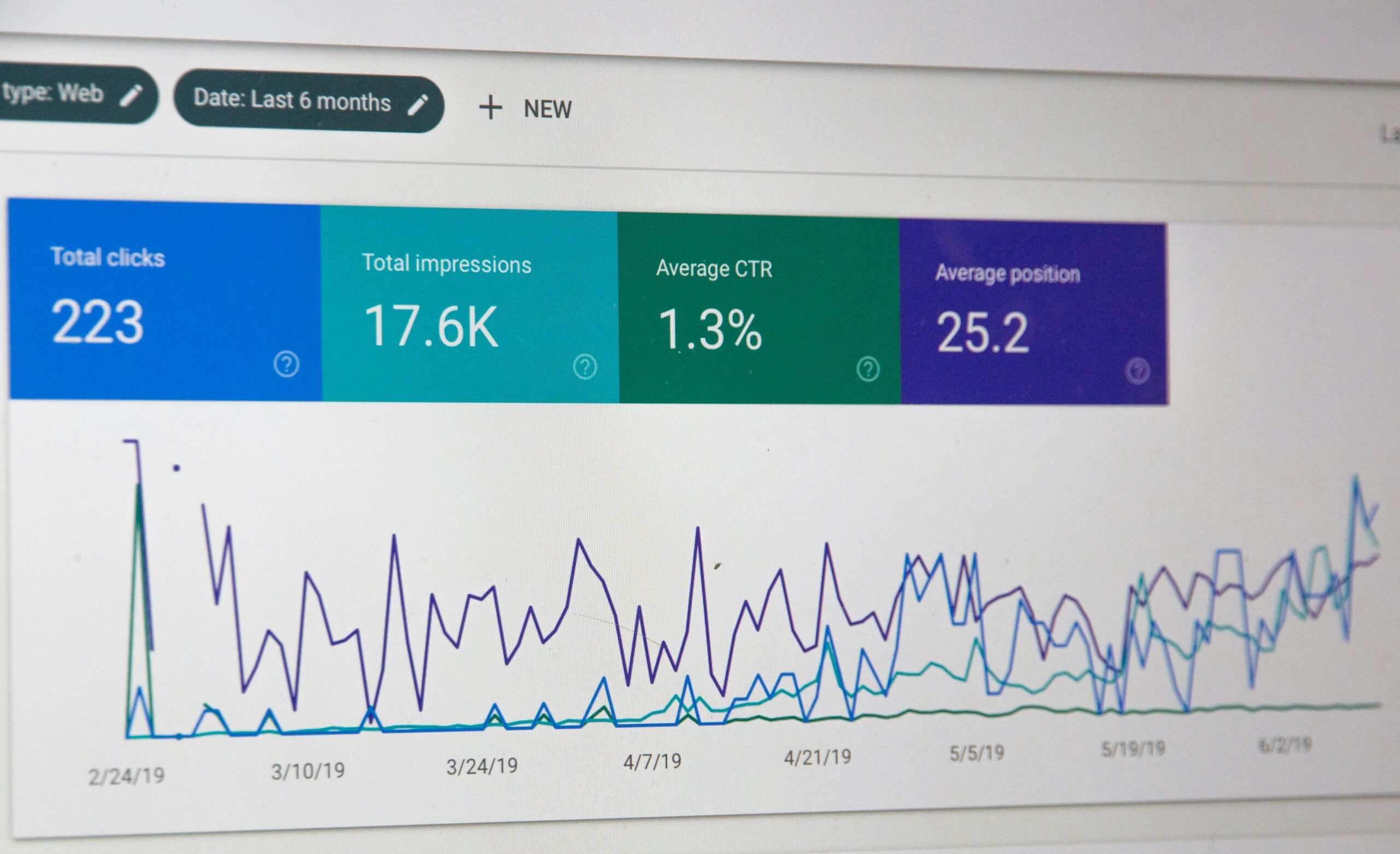
Understanding the Integral Role of SEO in Content Marketing
In the digital age, optimizing your WordPress site is pivotal for attracting and retaining an engaged audience. The dynamic interplay between SEO and content marketing is key to achieving this goal. While content marketing focuses on delivering valuable, relevant content to your audience, SEO ensures this content is easily discoverable by search engines. By merging these strategies, WordPress site owners can significantly boost their online visibility, engagement, and conversions.
The Symbiotic Relationship Between SEO and Content Marketing
For WordPress site owners, the interplay between content marketing and SEO is not just beneficial—it’s essential. Content marketing focuses on creating and distributing valuable, relevant, and consistent content to attract and retain a clearly defined audience. SEO, on the other hand, involves optimizing that content and the site structure itself to improve visibility in search engine results. When combined, these strategies ensure that high-quality content reaches the right audience, leading to increased engagement and conversions. By integrating SEO principles into content production from the outset, marketers can craft articles, blogs, and web pages that are not only informative and engaging but also rank well in search results.
Optimizing Content for Enhanced Visibility
Incorporating SEO into content marketing starts with keyword research. Identifying and integrating the right keywords within your content allows it to be easily discovered by your target audience via search engines. However, SEO extends beyond mere keywords. It encompasses the optimization of meta tags, URLs, and even image alt texts, which all contribute to a site’s SEO footprint. Moreover, SEO-friendly content is structured for readability and engagement, utilizing headers, bullet points, and short paragraphs to improve user experience. All these elements help WordPress sites cater to the algorithms of search engines, which prefer content that offers value to users.
Building Authority and Trust Through Strategic Content
Link building, another cornerstone of SEO, becomes significantly more impactful when combined with solid content marketing strategies. Publishing high-quality content not only invites external sites to link back to your WordPress site but also encourages social sharing and comment engagement, further signaling to search engines the relevance and authority of your site. Additionally, regularly updating content with current information and insights, a key content marketing strategy, keeps your site fresh and maintains its relevance in search rankings. Through continuous refinement and alignment of SEO and content marketing efforts, WordPress site owners can establish themselves as trusted voices in their niches, thus driving more organic traffic and fostering an engaged community.

Crafting SEO-Driven Content for Enhanced WordPress Performance
Integrating Keywords Naturally
To effectively blend content marketing with SEO, it is crucial to integrate keywords into your WordPress content in a way that feels natural and benefits the reader. Rather than stuffing your articles with keywords—which can detract from readability and incur penalties from search engines—focus on incorporating them seamlessly into high-quality, relevant content. Use tools like Google Keyword Planner or SEMrush to identify target keywords that align with your audience’s search habits. Then, strategically place these keywords in your titles, headers, meta descriptions, and throughout your content to enhance discoverability without compromising the user’s experience.
Optimizing Content Structure for SEO
The structure of your content plays a pivotal role in both SEO and user engagement. By organizing your posts with clear headings (using H1, H2, H3 tags), short paragraphs, and bullet points, you not only improve readability but also boost your WordPress site’s SEO performance. Search engines favor content that is easily navigable and scannable, as it aids in understanding the context and relevance of the content. Including alt text for images and embedding internal links to related topics further enhances your SEO efforts and keeps users engaged with more of your content, reducing bounce rates and increasing time on site.
Creating Value-Driven Content
At its core, combining content marketing and SEO is about delivering value to your audience. Content that addresses their concerns, answers their questions, and provides novel insights tends to perform better in search rankings. Engaging and valuable content encourages sharing, which can significantly amplify your reach and improve your site’s authority. Continuously updating old posts with new information, responding to user comments, and applying user feedback to craft better content are strategies that promote higher engagement and satisfaction. This approach not only favors SEO rankings but also builds loyalty and trust with your audience, creating a virtuous cycle of engagement and visibility for your WordPress site.

Key SEO Techniques for Boosting Content Visibility on WordPress
Integrating Keyword Research with Content Creation
To effectively boost the visibility of content on WordPress, content marketers and SEO specialists must begin by integrating comprehensive keyword research into the content creation process. This technique involves identifying key phrases that not only align with the brand’s message and audience interests but also exhibit high search potential. Utilizing tools like Google Keyword Planner or SEMrush can facilitate this selection, enabling creators to weave these keywords naturally into titles, headers, metadata, and the body, thereby enhancing SERP rankings and driving targeted traffic.
Optimizing WordPress for Mobile and Speed
Given the increasing prevalence of mobile browsing, ensuring that your WordPress site is mobile-friendly and loads quickly is paramount. This can be achieved through responsive theme selection and minimizing page load times with caching plugins and image optimization. Google’s PageSpeed Insights can serve as a vital tool in this endeavor, providing specific suggestions for enhancements. These optimizations contribute significantly to user experience, which is a critical factor in SEO rankings and sustaining visitor engagement.
Leveraging Internal Linking and Structured Data
Internal linking is a powerful tool for SEO that aids in establishing site architecture and spreading link equity among pages. By strategically linking relevant articles and sections within your WordPress site, you help search engines better understand the context of your content, which can boost the ranking of key pages. Additionally, implementing structured data through schema markup can enhance the way search engines interpret and display your content in the search results, often improving click-through rates with rich snippets like star ratings, images, or event information, which makes your listings more appealing.
Analyzing the Impact of SEO-Centric Content on Audience Engagement
The Synergy of SEO and Content Creation
When addressing the impact of SEO-centric content on audience engagement, it’s essential to recognize how intertwined content marketing and SEO have become, especially on platforms like WordPress. Content that is optimized for search engines does more than improve visibility; it enhances user experience by ensuring relevance and value. This synergy begins with keyword research that mirrors genuine user intent, enabling marketers to craft content that resonates deeply with their target audience. By focusing on topics that are both timely and relevant, and optimizing those topics around the keywords your audience is actually searching for, you can achieve a dual purpose: satisfying user queries and ranking favorably in search engine results.
Enhanced User Engagement Through Tailored Content
To maximize the impact of SEO-driven strategies on user engagement, content must be crafted with precision. This means not only incorporating relevant keywords but also ensuring the content is informative, engaging, and useful. High-quality content encourages visitors to spend more time on your WordPress site, which signals to search engines that your site provides valuable information. Moreover, well-optimized, engaging content is more likely to be shared across social platforms, further increasing its reach and enhancing its impact on your site’s overall SEO performance. Providing clear answers to common questions, in-depth analyses, and unique perspectives can make your content stand out in a crowded marketplace.
Tracking Success in SEO and Engagement Metrics
Aligning content marketing with SEO requires continuous monitoring and adaptation based on engagement metrics. Tools native to WordPress, along with external analytics platforms, allow marketers and SEO specialists to track how well their content performs in real terms. Metrics such as bounce rate, average session duration, and new vs. returning visitor ratio offer insights into how effectively the content engages users. Adjusting content strategies in response to these metrics is crucial for continuous improvement. For instance, if certain types of content consistently lead to longer session times, this is a strong indicator of the value users find in that content, guiding future content creation efforts.

Best Practices for Sustaining SEO and Content Marketing Synergy
Integrating Keyword Research with Content Creation
To maximize the impact of your WordPress site, it’s crucial to align content creation with in-depth keyword research. Start by identifying keywords that are not only relevant but also have a reasonable search volume and competition level. Tools like Google Keyword Planner or SEMrush can provide insights into which terms are frequently searched by your target audience. Once you have your set of keywords, weave them naturally into your content, including titles, headers, meta descriptions, and blog posts. This practice ensures that your content is both user-friendly and optimized for search engines, making it easier to attract and engage the right audience.
Enhancing User Experience Through SEO-Driven Content
An often overlooked aspect of SEO and content marketing synergy is the user experience (UX). Google’s algorithms increasingly prioritize sites that offer a positive user experience, including fast load times, mobile-friendliness, and easy navigation. By optimizing your WordPress site from a technical SEO standpoint and ensuring your content is engaging, informative, and easy to access, you can significantly improve visitor retention and conversion rates. Implementing structured data and improving internal linking structure can also enhance the discoverability of your content through rich snippets and better indexing.
Regular Analysis and Adaptation of Strategies
SEO and content marketing are dynamic fields that require ongoing attention and adaptation. Regularly analyzing your WordPress site’s performance using tools like Google Analytics and Google Search Console gives you valuable insights into what works and what doesn’t. Monitor metrics such as page views, bounce rate, and conversion rates to understand user behavior and preferences. Adjust your content and SEO strategies based on these insights to maintain and enhance the effectiveness of your digital presence. Staying informed about the latest SEO trends and algorithm updates can also help you adapt your tactics proactively, keeping your WordPress site competitive and relevant.
Elevating Your WordPress Site with Integrated SEO and Content Marketing
By strategically integrating SEO and content marketing, WordPress site owners can maximize their online presence and audience engagement. This synergy not only enhances search engine rankings but also delivers a superior user experience. Continuously optimizing your content and site structure based on SEO principles ensures your content remains visible and relevant. Embrace this holistic approach to establish your site as a trusted resource and drive sustained organic traffic.
Frequently Asked Questions about SEO and Content Marketing for WordPress Sites
Understanding the nuances of combining SEO and content marketing can be challenging. Here are some common questions and answers to help you navigate this crucial aspect of your WordPress site strategy.
How do I choose the right keywords for my WordPress content?
Start by using tools like Google Keyword Planner or SEMrush to identify keywords relevant to your audience and industry. Focus on long-tail keywords with lower competition but significant search volume.
Can I optimize existing content for SEO?
Absolutely! Revisit old posts and update them with current keywords, meta tags, and optimized headings. Ensure the content is still relevant and valuable to your audience.
How often should I update my WordPress content for SEO?
Regular updates are crucial. Aim to refresh your content at least every six months, or sooner if there are significant changes in your industry or SEO trends.
What role does mobile optimization play in SEO?
Mobile optimization is critical as search engines prioritize mobile-friendly sites. Ensure your WordPress theme is responsive and that your site loads quickly on mobile devices.
How can internal linking improve my site's SEO?
Internal linking helps distribute link equity across your site and makes it easier for search engines to crawl and index your content. It also enhances user experience by guiding visitors to related content.
Boost Your WordPress SEO and Content Marketing Today
Ready to elevate your WordPress site? Our team of experts can help you seamlessly integrate SEO and content marketing strategies to enhance your online presence. Don’t wait – start optimizing your content for maximum visibility and engagement now. Contact us today to learn more and take the first step towards a more successful WordPress site.

